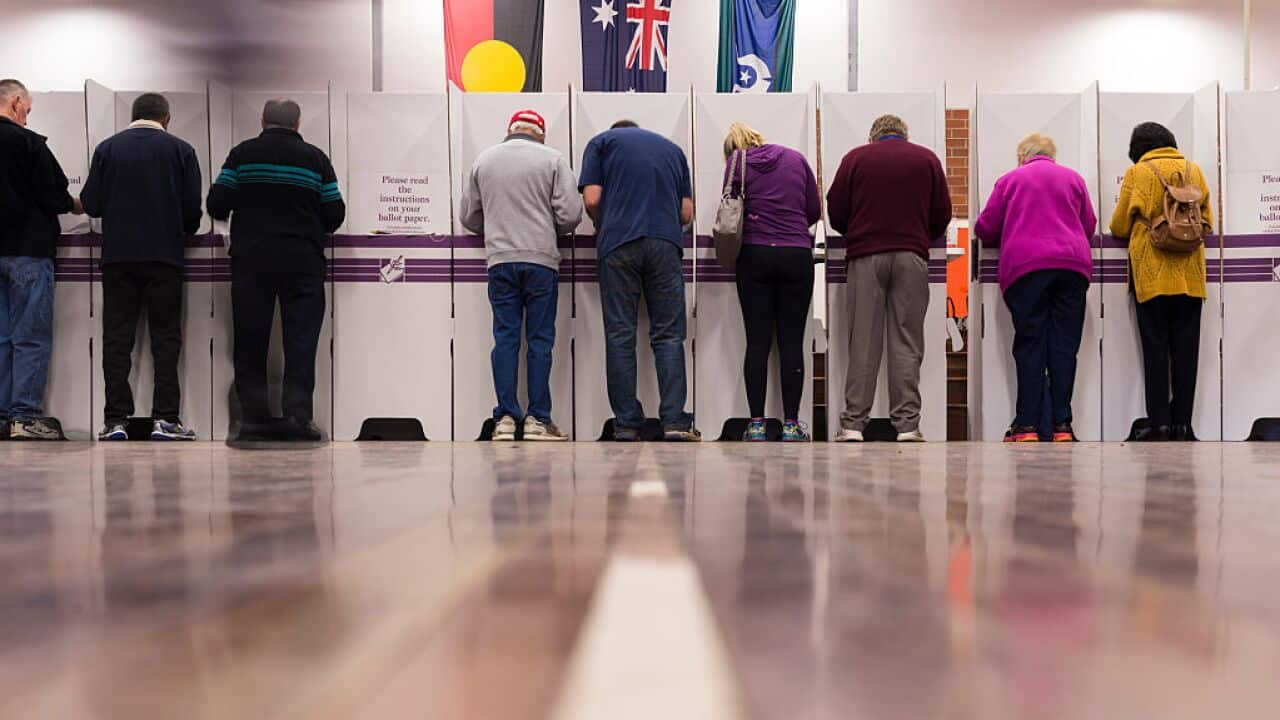Bài học này phù hợp với những người học từ trung cấp đến cao cấp. Sau khi nghe xong, hãy giải câu đố để kiểm tra bạn đã học được gì.
Learning notes
Lesson language objective
How to talk about lack of money in personal and professional situations
Different ways to say you don’t have enough money for personal relationships:
- I’m a bit low on funds.
- I’m a bit short on cash at the moment.
- I’m broke.
- I can’t afford it.
- I’m strapped for cash.
Different ways to say you don’t have enough money for professional relationships:
- I’m feeling the pinch at the moment.
- I’m not sure my bank account will cope with it.
- My finances are tight.
- I’m on a tight budget.
- I’m not sure I can afford it.
- I’m in the red.
Colloquial expressions:
Being born with a silver spoon in your mouth means being born to a rich family and having everything you want. He was born with a silver spoon in his mouth.
Pick up the tab means to pay for something, especially something someone else has used or bought. She picked up the tab for everybody’s lunch.
If something costs an arm and a leg, it is very expensive. I can’t afford that. It costs an arm and a leg.
Mates’ rates are the lower prices for products and services extended only to friends and family. I got this computer really cheap, my friend sold it to me at mates’ rates.
Vocabulary:
Financial hardship –is any situation where somebody has difficulty repaying their loan and debts.
Financial counsellor – trained professionals who can provide information and advice to people about their finances.
Cultural information:
helps people in financial hardship with FREE, independent and confidential assistance. Their financial counsellors are professionals trained to help people in stressful situations. They can assess your situation, inform you about your consumer’s rights and provide you with advice to help you move on.
You can access their free services in your language through the

Business people negotiate business through video conference Source: Getty Images/Moment RF
Transcript
(Note: This is not a word-for-word transcript)
Hello! This is the SBS Learn English podcast, where we help Australians to speak, understand and connect.
My name is Josipa, and like you, I’m learning the English language. Today we are learning phrases that can help when we have to turn down an invitation for financial reasons.
I don’t know about you, but unfortunately, I wasn’t born with a silver spoon in my mouth.
Being born with a silver spoon in your mouth is an expression we use to say being born to a rich family and having everything money can buy.
So, since I wasn’t born with a silver spoon in my mouth, there have been situations when I was saving up for something special and couldn’t afford to do all the fun things my friends were doing.
And I had to explain to them that I couldn’t go with them because I didn’t have enough money. That can be so embarrassing.
But luckily, the English language has lots of different phrases that can help us say that we don’t have money.
Listen to this conversation between friends, Allan and Maryanne, and pay attention to the phrases they use to talk about their financial situation.
Maryanne:
Are you going to Simon’s fancy dinner?
Allan:
Yeah, I don’t know. I’ve just paid for my parent’s overseas tickets, so I’m low on funds, and Simon’s get together seems a bit over the top.
Yeah, I don’t know. I’ve just paid for my parent’s overseas tickets, so I’m low on funds, and Simon’s get together seems a bit over the top.
Maryanne:
Oh yes, the restaurant he chose costs and arm and a leg, and I’m also a bit short of cash at the moment.
Oh yes, the restaurant he chose costs and arm and a leg, and I’m also a bit short of cash at the moment.
Allan:
Yeah, he always has plenty of money and doesn’t understand what it is like to be broke like the rest of us.
Yeah, he always has plenty of money and doesn’t understand what it is like to be broke like the rest of us.
Maryanne:
That’s life, I guess. For some money does grow on trees and others are strapped for cash.
That’s life, I guess. For some money does grow on trees and others are strapped for cash.
Josipa:
In this short dialogue, Allan and Maryanne use four different ways to say they don't have money.
In this short dialogue, Allan and Maryanne use four different ways to say they don't have money.
Have you spotted them? Don’t worry if you didn’t, we’ll go through them one by one.
When Maryanne asked Allan if he was going to a fancy dinner, which means an expensive dinner, he said,
I'm low on funds, and Simon's get together seems a bit over the top.
Allan is low on funds, and Simon’s proposal for a get together, which is an informal social gathering seems a bit over the top.
Over the top means that something is too much, excessive or exaggerated.
So, Allan is low on funds.
Funds in this context mean financial resources, so you could say, “I’m running a little low on funds at the moment”.
Maryanne then said,
The restaurant costs and arm and a leg, and I’m also a bit short of cash at the moment.
If something costs an arm and leg, it is very expensive, and we don’t think it’s a good idea.
Maryanne also said that she is a bit short of cash at the moment, meaning she doesn’t have enough of it.
Let’s say you are having a coffee with a friend who is struggling financially. You could ask them: “Are you short of cash? Don't worry, I'll pick up the tab”.
By the way, to pick up the tab means to pay for something, particularly for food and drinks someone else has consumed.
At the end of the conversation, we’ve heard very informal expressions to describe how much money people have.
Let’s hear them once again,
Allan:
Yeah, he always has plenty of money and doesn’t understand what it is like to be broke like the rest of us.
Yeah, he always has plenty of money and doesn’t understand what it is like to be broke like the rest of us.
Maryanne:
That’s life, I guess. For some money does grow on trees and others are strapped for cash.
That’s life, I guess. For some money does grow on trees and others are strapped for cash.
Josipa:
Broke and strapped for cash. You can use either of these expressions to say that you have no money left.
Broke and strapped for cash. You can use either of these expressions to say that you have no money left.
So, you could say, “She is flat broke until she starts a new job” or, “He got a new car and now he is strapped for cash”.
Oh, and if you haven't heard the expression that something grows on trees, it means it exists in large amounts. We often use it to say that we don’t have a lot of something.
For example, when kids ask for new things all the time and don’t seem to understand how hard it is to earn money, you hear people say, “Money doesn’t grow on trees, you know.”
So, the four expressions we’ve heard so far that mean not having much money are:
- I’m low on funds.
- I’m short of cash.
- I’m broke.
- I’m strapped for cash.
Now, let's imagine that Allan and Maryanne are not friends, and that their relationship is a bit more formal.
For example, Maryanne is now Ms Marshall, and she is Allan’s boss. What expressions will they use this time?
Maryanne:
Morning Allan. You are looking very smart today. Are you going to Simon’s promotion lunch?
Morning Allan. You are looking very smart today. Are you going to Simon’s promotion lunch?
Allan:
Morning Ms Marshall, Yeah...nah. I’ve decided I’d better not go. I’ve just paid for my parent’s overseas tickets, so I’m feeling the pinch at the moment. The restaurant is a little on the pricey side for me at the moment.
Maryanne:
Oh that’s a pity. Yes, it is likely to be a little pricey for people on a budget. I’m not sure my bank account will cope with it either!
Oh that’s a pity. Yes, it is likely to be a little pricey for people on a budget. I’m not sure my bank account will cope with it either!
Allan:
That's life, I guess. I’m sure the next time I won’t be in the red and can come along.
That's life, I guess. I’m sure the next time I won’t be in the red and can come along.
Josipa:
See what I mean? We got a completely new set of phrases because in this dialogue the relationship between Allan and Maryanne is professional not personal.
See what I mean? We got a completely new set of phrases because in this dialogue the relationship between Allan and Maryanne is professional not personal.
Let’s start with Allan, he said,
I’m feeling the pinch at the moment.
If you feel the pinch, you are experiencing problems caused by not having enough money.
For example, I’m starting to feel the pinch of the rise in electricity costs.
Maryanne then said,
I'm not sure my bank account will cope with it either!
You could also say, “My finances are tight" or, "I’m on a tight budget.”
Even saying something simple like, “I’m not sure I can afford it” sounds so much better than saying, “I don’t have money.”
At the end of the conversation Allan said he is in the red. If you are in the red, it means that you have spent more money than you earn.
Today, as our guest, I’ve invited a man who knows a lot about money. His name is Ricardo Gonçalves.
Hi Ricardo, thanks for taking time off your busy schedule.
Ricardo:
It’s my pleasure Josipa.
It’s my pleasure Josipa.
Josipa:
As SBS’s Finance Editor, you are, among other things, the voice and mind behind the podcast called . What kind of information do you provide to your listeners?
Ricardo:
Well, the SBS On the Money podcast is a daily 10-minute finance and business news wrap where we speak with CEOs, share market analysts, consumer finance experts about everything that impacts your money. And you can find it wherever you stream your podcasts including SBS News app.
Well, the SBS On the Money podcast is a daily 10-minute finance and business news wrap where we speak with CEOs, share market analysts, consumer finance experts about everything that impacts your money. And you can find it wherever you stream your podcasts including SBS News app.
Josipa:
Sounds very informative. In our podcast today, we learned different ways of saying that we can't afford to go somewhere or do something special. But some people can have more serious money trouble, like having difficulty paying bills or repayments on their loans. What should people say to talk about more serious situations like these, and who should they talk to?
Sounds very informative. In our podcast today, we learned different ways of saying that we can't afford to go somewhere or do something special. But some people can have more serious money trouble, like having difficulty paying bills or repayments on their loans. What should people say to talk about more serious situations like these, and who should they talk to?
Ricardo:
If someone finds themselves in debt and is struggling to pay their bills or regular payments, they should seek what we call financial hardship assistance. So, when you’re talking with your financial institution about this kind of situation, use the more formal expression:" I'm in financial hardship" because then people understand that this is a serious situation, and this starts a different kind of conversation around what capacity you have to pay.
If someone finds themselves in debt and is struggling to pay their bills or regular payments, they should seek what we call financial hardship assistance. So, when you’re talking with your financial institution about this kind of situation, use the more formal expression:" I'm in financial hardship" because then people understand that this is a serious situation, and this starts a different kind of conversation around what capacity you have to pay.
Josipa:
And where can people seek financial hardship assistance?
And where can people seek financial hardship assistance?
Ricardo:
In Australia, we have the National Debt Helpline, which provides free, confidential financial and legal advice to help people negotiate repayment options and improve their financial situation. You can look them up online to find information and financial counsellors to speak to. And if English is not your first language and you have difficulties understanding, you can have help from free interpreting services provided by the Department of Home Affairs.
In Australia, we have the National Debt Helpline, which provides free, confidential financial and legal advice to help people negotiate repayment options and improve their financial situation. You can look them up online to find information and financial counsellors to speak to. And if English is not your first language and you have difficulties understanding, you can have help from free interpreting services provided by the Department of Home Affairs.
Josipa:
That’s great to know. Thank you, Ricardo.
Ricardo:
Thank you for having me, but I have a question for you before I go. Do you know what ‘mates’ rates’ are?
Thank you for having me, but I have a question for you before I go. Do you know what ‘mates’ rates’ are?
Josipa:
Mates’ rates? Well, I know that a mate is a friend, so mates’ rates could be a special price for friends?
Mates’ rates? Well, I know that a mate is a friend, so mates’ rates could be a special price for friends?
Ricardo:
That's right. Mates’ rates are the lower prices given only to friends and family. It's a phrase every Australian knows about.
That's right. Mates’ rates are the lower prices given only to friends and family. It's a phrase every Australian knows about.
Xin gửi lời cảm ơn sâu sắc đến chuyên gia tư vấn giáo dục của chúng tôi - Giáo sư Lynda Yates, các khách mời Ricardo Gonçalves, Paul Nicholson và Coni Laranjeira - những người đã lồng tiếng cho các nhân vật Allan và Maryanne, và Zed (11 tuổi) – người chơi đàn piano.
Xem thêm các bài:
















